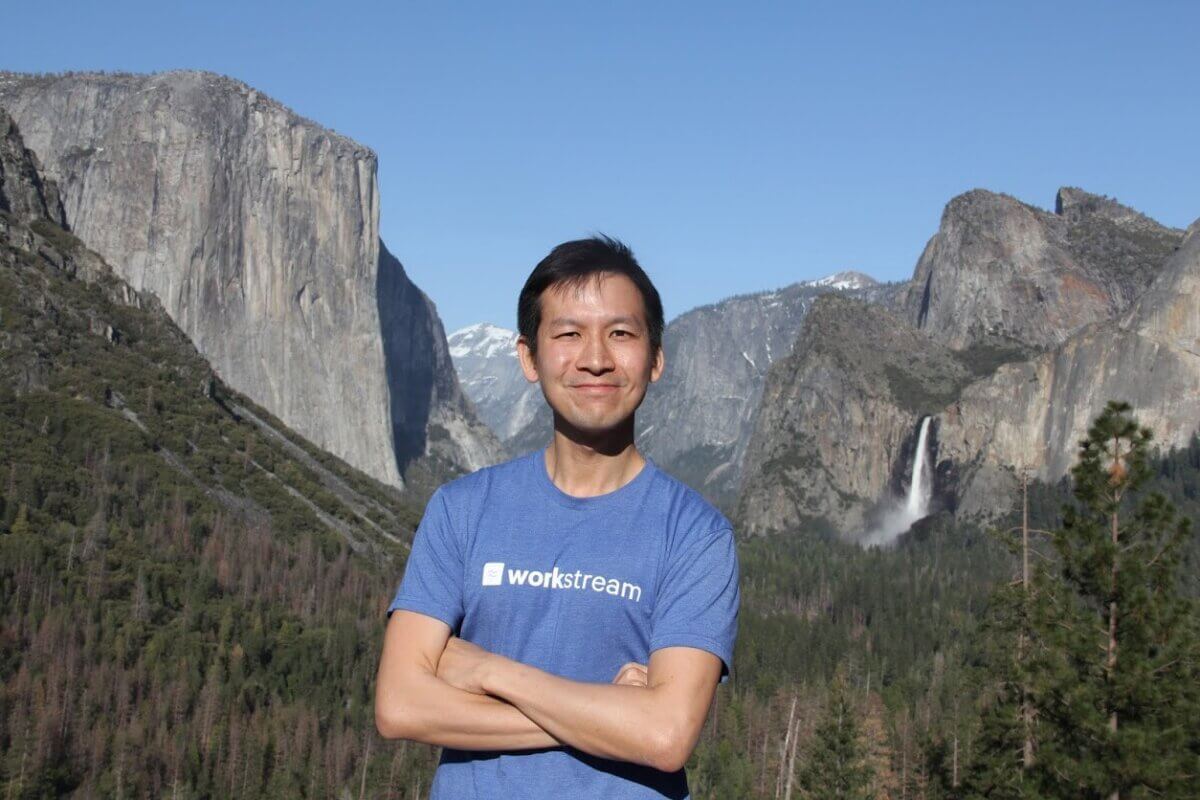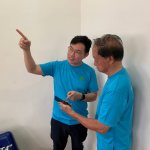By SMU School of Accountancy Social Media Team
As a technopreneur, Accountancy alumnus Desmond Lim is no stranger to taking calculated risks and bouncing back from failure. As founder and CEO of Workstream.us—an automated hiring platform for companies employing hourly workers, Desmond constantly seeks to improve his product and believes strongly in speaking with his customers to understand their needs.
Since 2017, Workstream.us has helped over 5000 hiring managers automate the hiring process and screened more than 1 million applicants. In August 2020, Desmond Lim was recognised as one of the 2020 Silicon Valley Business Journal’s 40 under 40 honourees. We caught up with Desmond in an exclusive interview.
Our heartiest congratulations on being selected as one of 2020 Silicon Valley Business Journal’s 40 under 40 Honorees! Can you share with us your thoughts on this achievement?
I am incredibly honoured to be selected as an honouree for the SVB Journal. I first came to Silicon Valley in 2006 while I was a student at Singapore Management University (SMU) as part of a Business Study Mission Trip. We came to the San Francisco Bay Area and visited Apple, Google, eBay, Stanford University and more, to learn about the entrepreneurial ecosystem and startup culture. I learned about the history of Silicon Valley, the culture of risk-taking and the focus on innovation.
As a bright-eyed freshman in college, the trip changed my life. In 2016, I moved to the San Francisco Bay Area and was determined to fulfil my dream—to create a global startup that would impact millions of local businesses and hourly workers and to empower them to do their work better.
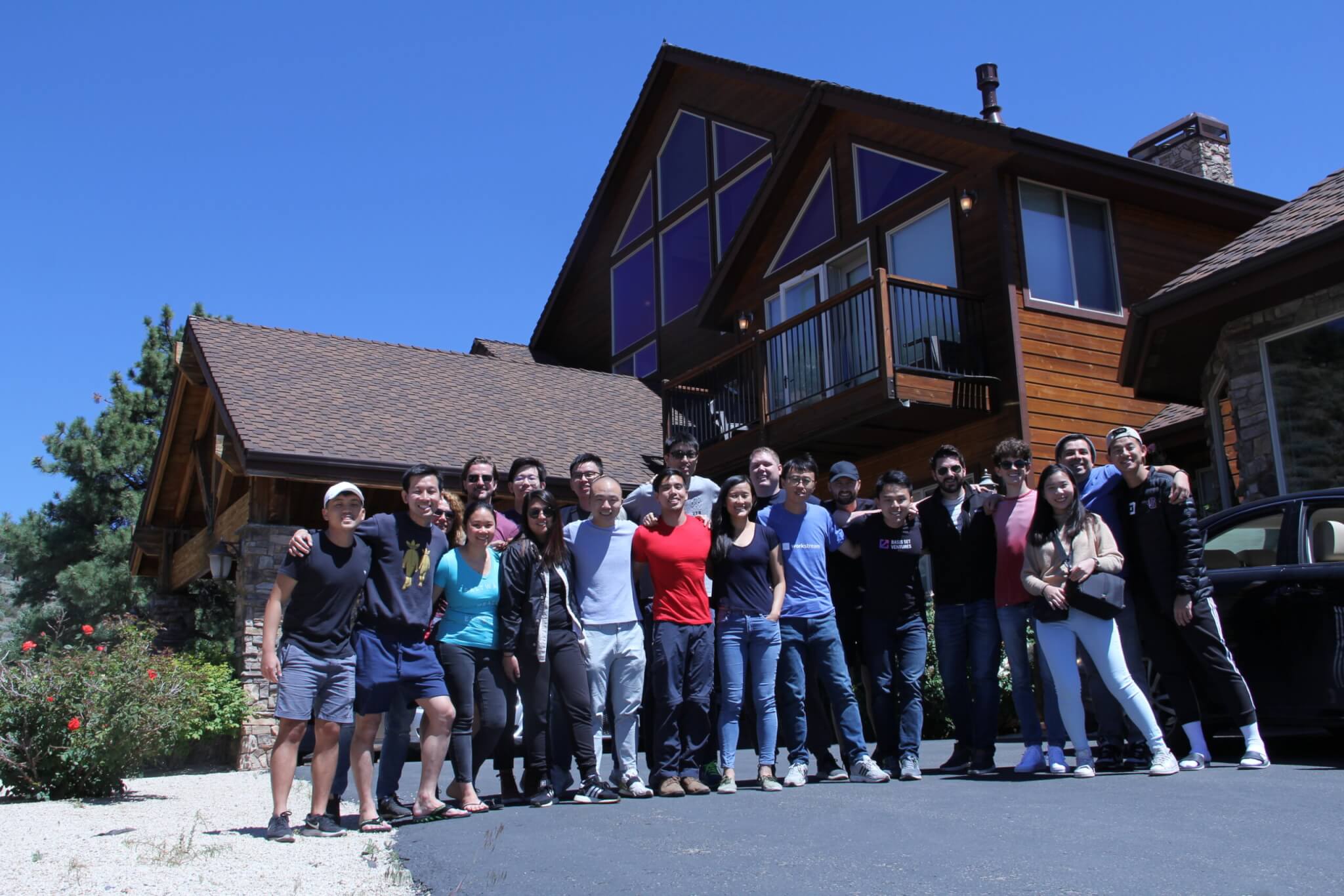
Desmond (2nd from left) with his team at Workstream.us
As a young start-up, Workstream has helped over 5,000 hiring managers automate the hiring process and screened more than 1 million applicants. In May 2020, Workstream announced that it has raised a US $10 million Series A round, bringing its total known financing to US $12.5 million. Can you share what you think lies in the core of Workstream’s success?
One of our missions at Workstream.us is to continually improve our product. There is always room for growth and development in regards to the hiring process. While we’ve definitely improved the hiring process and made it significantly more straightforward, I think we can always continue to update the ways in which companies customise the hiring application or process through Workstream. For us, what we can improve is in large part dependent on the feedback we receive from our clients. We believe that as long as we have something that people want, we should worry less about competition and focus more on addressing peoples’ wants. We spend more time with our clients and talk to them to understand what they truly want.
As a technopreneur, Workstream is not your first successful start-up venture. What were the greatest challenges you faced as a technopreneur building start-ups in the US?
Being an entrepreneur inherently means taking risks and making sacrifices. One of the main sacrifices that I’ve made has been dedicating all of my free time to a productive schedule that helps me achieve my goals.
Prior to working on Workstream, I worked on this on-demand moving company called QuikForce and it didn’t pan out as expected. As moving is a one-off event, the cost to acquire every client was very high. I didn’t have the right skill sets and I identified the wrong pain-point. I thought people wanted to move their house faster, quicker, and to match with moving companies. But that’s not true. People want the best price when they are thinking about moving because it is a one-off event. I built a team of about 10 people, raised about US $1.2 million for that company over two years back in Boston.
It was great and I learned so much from that experience. Even though that company didn’t pan out, I learned so much from it in terms of how to build a team, how to find the right pain point, how to talk to customers and hear them out. I strongly recommend that all entrepreneurs talk to their customers and try to understand what their pain points are in order to grow past failures.
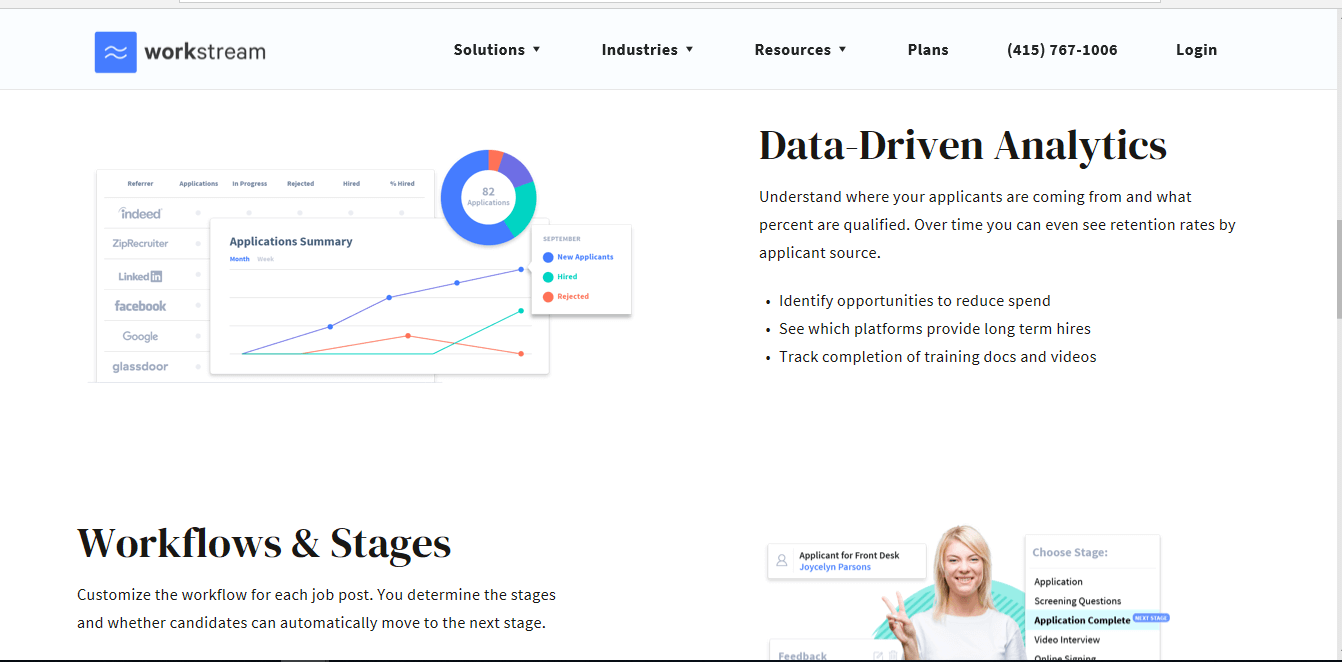
A hiring solution offered on Workstream.us
As the US jobs market slows down with Covid-19, what opportunities do you see for Workstream as an automated hiring platform and how do you think it can impact the job loss situation?
I definitely think that people are going to use more video and text to hire faster and better. We see more companies using tools such as Workstream to help them to screen, onboard, and train people faster. There are four times as many applicants per open position this year versus last year, due to record high unemployment, so there are more people looking for jobs. Employers can easily post to more jobs boards (Workstream allows them to post to 25,000 job boards with one click). But finding qualified candidates who are a good culture fit remains challenging.
Another big trend is “contactless hiring.” Most franchise businesses we work with switched from in-person interviews to phone or video interviews. In the last few weeks, we’re seeing more switch back to in-person interviews, but they are retaining the phone/video interview stage before inviting them in store. We’re seeing franchise owners of Carl’s Jr., Pieology, and Jamba adding a video stage to their hiring process to determine who is really interested. They ask applicants to submit a 30-second video introducing themselves. Hiring managers scroll through these videos within Workstream’s platform and choose who to invite to a Zoom interview.
For decades, people have been saying we’re headed toward a paperless office and this pandemic might be what pushes us into that reality. With virtual hiring, candidates will have to receive and send back signed paperwork multiple times. Sure, you can email them a PDF to print out, sign, scan and email back… but there are better ways of doing it.
From automated applicant screening to video interviews and online onboarding, contactless hiring is definitely the way to go. Workstream’s end-to-end hiring platform has all the features needed to implement contactless hiring.
Can you share more about your journey from a fresh SMU School of Accountancy graduate to achieving your entrepreneurial goals today?
I was born and raised in Singapore. My parents only finished 4th grade, so I witnessed the struggle that they faced as hourly workers at an early age. I worked as a tutor to students after high school to pay for college.
Then at SMU, I founded my first business—a Thai food restaurant—where I had to hire hourly workers. I got to witness how frustrating both sides of the hiring process can be, and I was determined to help both businesses and workers to find a solution. After SMU, I worked at Bank of Merrill Lynch for three years before coming to America in 2013 to study at Harvard University and MIT Media Lab. I’m a first generation immigrant who paved my way in the United States after I graduated from SMU, taking all of my learnings and experiences with me. I’m now the CEO and co-founder of Workstream.
Lastly, do you have any words of advice for budding entrepreneurs and how they can navigate the challenging Covid-19 situation?
There is a trend of remote work taking place right now, especially amidst Covid-19. More and more people are working remotely, and there’s a need for tools that will help them do so more effectively. While software like Zoom and Slack are very helpful, this whole market is still in its very early stages. In order to develop a business in this market, I would ask myself; how can I build an app or software to help people who work from home to interact more effectively with their teams?
Companies have announced major hiring programmes because many employees who were furloughed are not coming back. We recently surveyed 5,200 hiring managers about how they’ve been impacted; 32 per cent of hourly workers are unable to work because they are caring for children who are out of school or other family members (survey).
The ongoing Covid-19 pandemic has fundamentally changed the job market for multiple generations of workers, both those with decades of experience under their belts and young adults just entering the workforce. Because of this, hiring managers now have a harder time than ever staffing: just because there are more to choose from, doesn’t mean it’s any easier. And some traditional ideals on hiring will be changed for the foreseeable future. Many Americans will have a Covid-19-sized gap in their resume, and savvy hiring managers will be able to get skilled workers on a discount as the job market recovers. It’s also a way for smaller cities to fill open jobs, hiring recent grads with the right skill set instead of those with more experience (source).
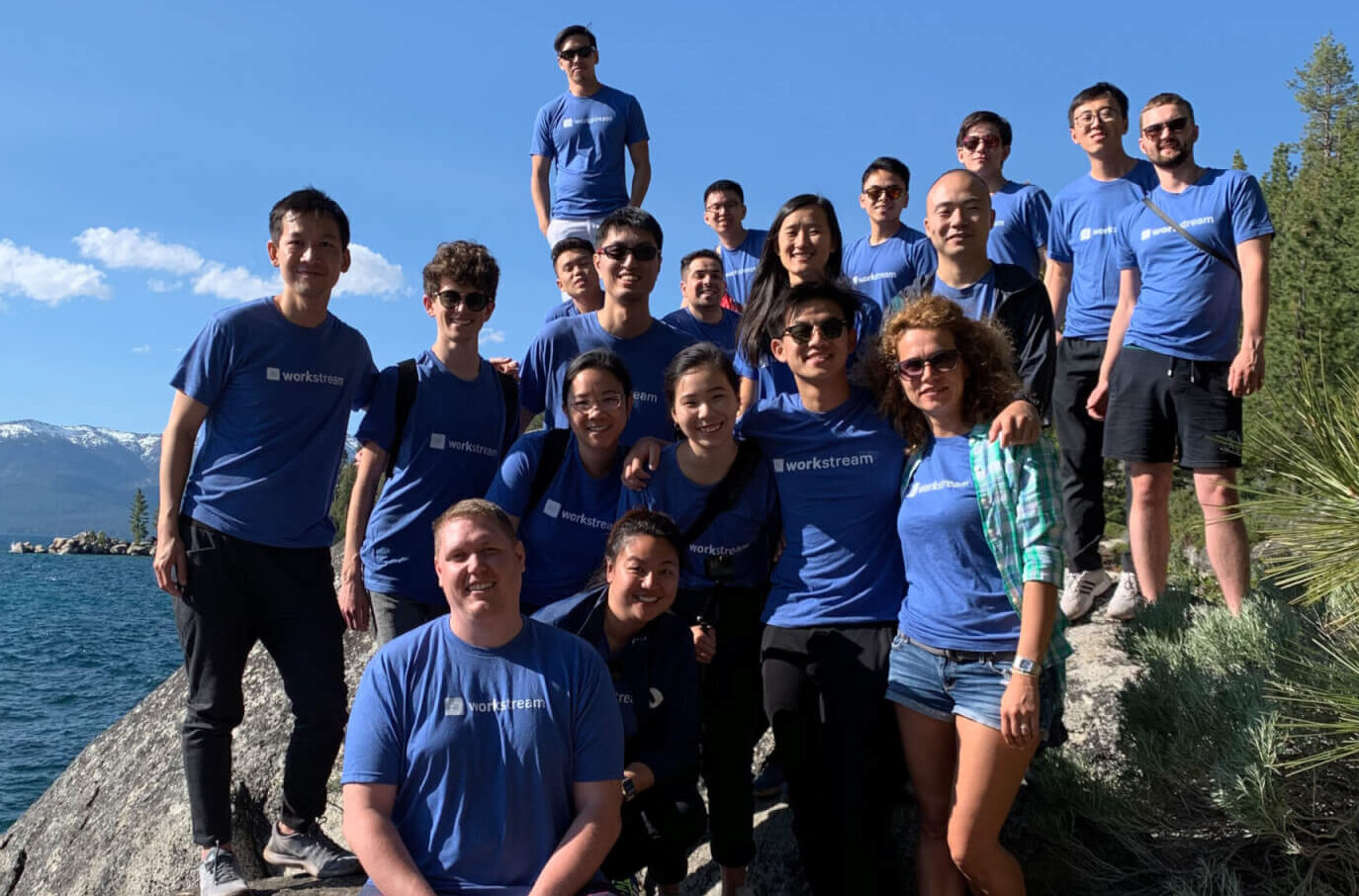
Workstream.us on a company outing
The above interview first appeared in the September 2020 issue of SOA Enewsletter SOAReach.
Keen to embark on a journey with SMU? Learn more about our Bachelor of Accountancy programme today.

